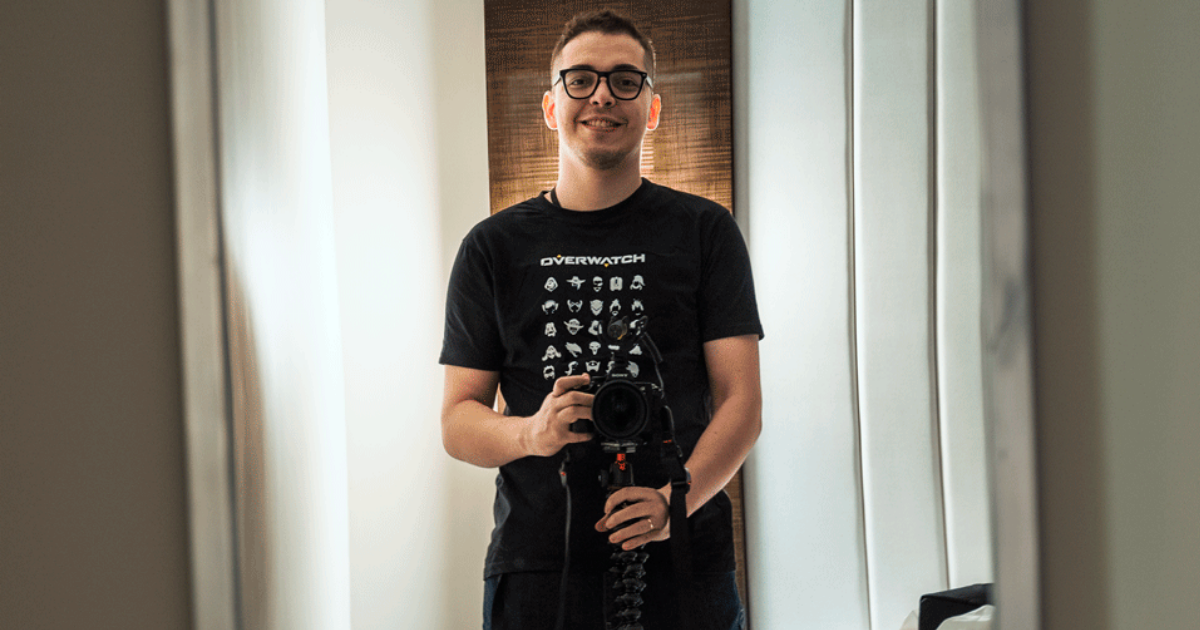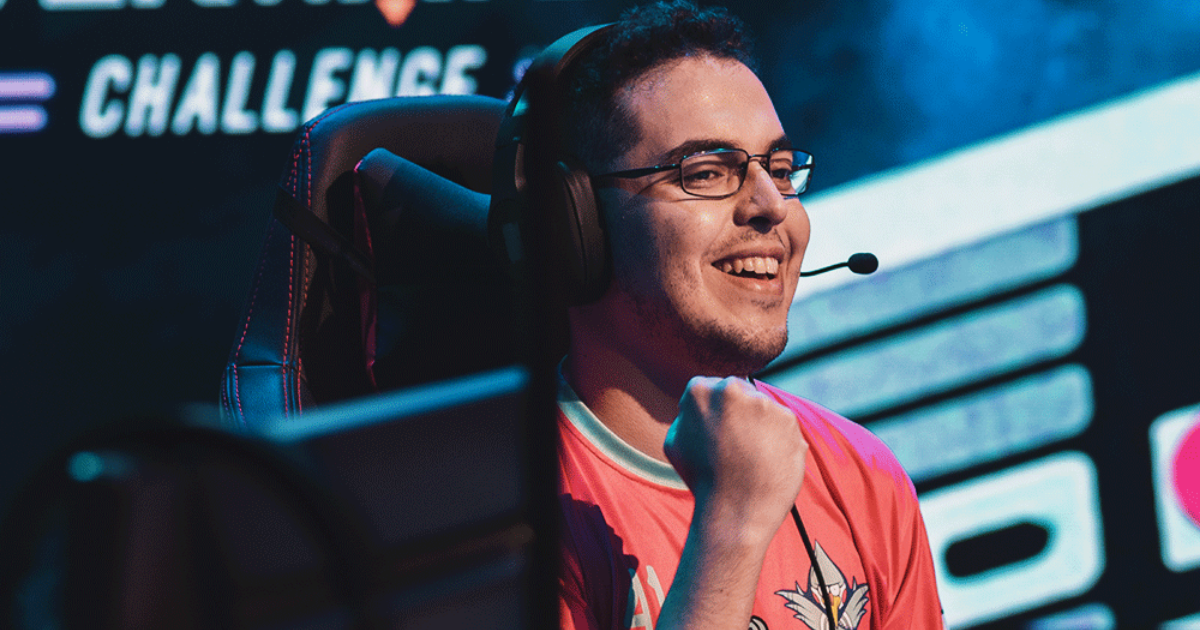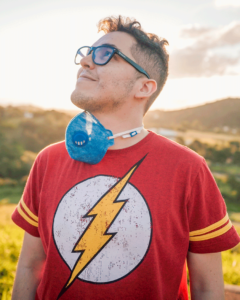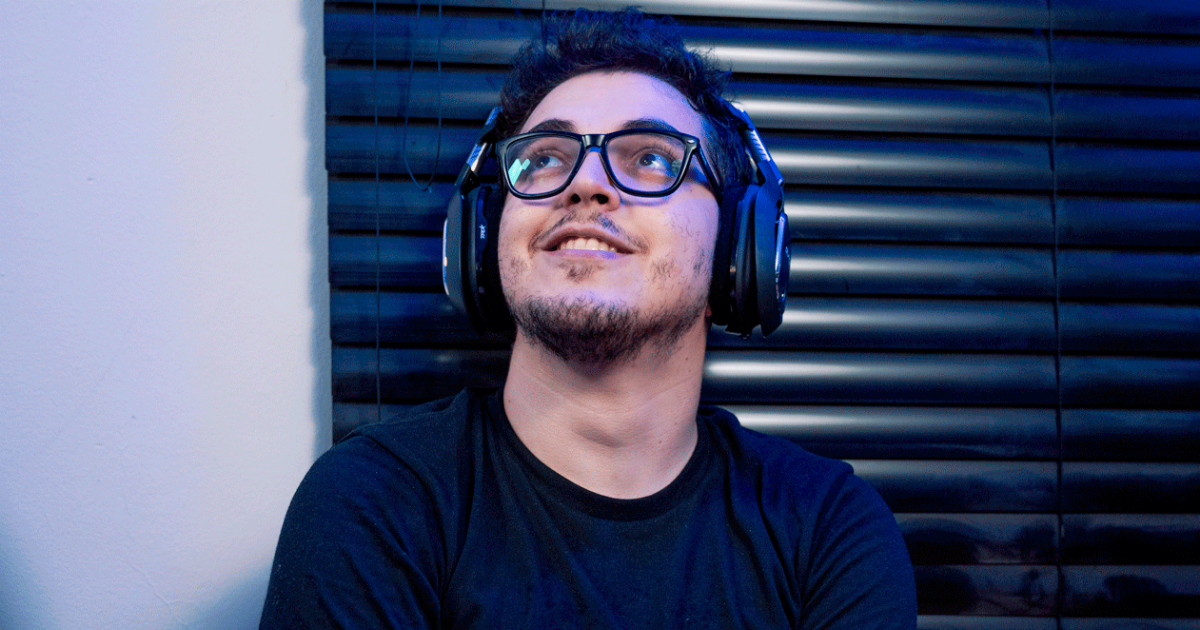For YouTuber Hagazo, gaming has always been more than a fun hobby. It has helped him through challenging times, inspired him to learn new skills, and now has become his full-time job. After years of hard work, his videos reach millions of views. He shares with us his tips for new creators and how the industry has changed over the years.
Want to get paid for your content? Sign up to our platform and you’ll be matched with relevant brands.
How long have you been a creator for and how did you start out?
I’ve been a creator for eight years now. I graduated from law school and didn’t feel like following a career, so I tried to go down a different route and chase my two passions: producing videos and talking about entertainment. I saved some money for a while to get a PC that was capable of handling gaming and video editing and eventually started my channel.
Has your taste in games changed over time? What are your favourites?
Yes and no. Since I was a kid I loved action adventure and RPG games the most. But I used to play everything. As a Brazilian, we didn’t have too much to choose from. We used to rent games from a store, and if we arrived late, only a few remained. The only way we could decide on games was by asking friends if they had already played it or by looking at the game’s cover art.
My favourite games are always related to some memory I have from the time I played them. I was playing Pokemon Stadium at a time when I was struggling at school, and it helped me feel better.
Legend of Zelda: Ocarina of Time was probably the first action RPG that I finished, with the help of a walkthrough magazine, since I didn’t speak English back then. Final Fantasy VII is another game that I loved and inspired me to learn English. I didn’t even have a Playstation. I just purchased the game, a memory card and would beg my friends to use their console. Eventually my grandfather saw my struggle and gave me a Playstation. I still remember the day he showed up with the box!
The MMORPG Tibia is another one that I have to mention. It was online, and players could approach and kill you or steal your stuff. It taught me a lot about dealing with other people, making choices, and how to think strategically.

How has your channel developed over the years?
I struggled and I still struggle daily, because everything is constantly changing, sometimes too fast. If you try long enough, and learn from your mistakes, you will see what works for you and what doesn’t. Eventually I found my own way of showing my experiences during the gameplay, mixing reactions and conversations with the audience, and the channel started growing.
The first year I probably went from 0 to 30,000 subscribers, which showed me that there was potential. We must remember that Brazilian CPM isn’t great, so I was barely making any money. I had this dream, and I kept fighting in order to make it work. I reached 100,000 subs in the third year, a million subs by the fifth, and 2 million subs after six years.
We developed content-wise. I started off doing reviews, but eventually dropped it, because I found gameplay had a deeper connection to viewers. We also started juggling trends that I’m interested in and things that sometimes people don’t pay as much attention to. I’ll always want to present new games and new experiences to my audience, because I’m the kind of person that would love to discover hidden gems. Nowadays, we still try to focus on gaming experiences that show great stories, great adventures and overall, make people happy.
Some of your videos get millions of views, how does it feel to have that many people looking at your videos?
It’s scary if you think about the responsibility we have as a creator. But at the same time it feels great to reach lots of people with these videos, which often have good messages.
Video games have helped me throughout my whole life. They were there when I was a kid facing the divorce of my parents, showing me that heroes face up to stuff and don’t give up. They were there giving me great stories, characters and situations to think about. So I add a little bit of that in the videos whenever possible, to show people that gaming can be more than just fun.
When a video of mine reaches millions of views, I like to think that I’m passing along this passion and hopefully showing part of the audience that it’s important to think further when playing video games. Reaching lots of people also helps showing that all the effort and struggles I went through by chasing this life as a full-time creator was worth it.

If you could give any advice to yourself when you were just starting out, what would it be?
I’d say believe more in yourself. The first years of my channel I was so afraid of the exposure that I used a mask whenever I had to show in person. I hid my face for two or three years. I figured I had to learn how to speak to the audience, what my tone was, how to behave in front of a camera, and how to make myself interesting. I was also worrying about the way I looked. What if people didn’t like me?
I spent years self doubting myself in many ways and I still do, but when we dream, sometimes we have to just let ourselves believe and chase it. When things start to work, it’s easier to make other people embrace your dream. So, being confident, believing more in ourselves, knowing that we will make a lot of mistakes and still keeping going, correcting, studying, learning from the ups and downs, is super important. I only convinced myself of that around four or five years after starting the channel.
How has the creator industry changed since you started?
It has changed A LOT. When I started in 2013, people were still downplaying content creators. Doing videos for YouTube, at least in Brazil, was something that the majority of people couldn’t see as a career.
They would laugh if you said you were trying to go full time by “doing videos of gaming on the internet”. From 2013 to now, we saw the growth of YouTube. We saw lots of people from different niches reaching success from creating content. We saw the growth of e-sports, the acceptance of content creators, the growth of content creator marketing, the development of strategic sponsorships with brands.
This is an industry that changes daily and it’s important to keep following these changes if you want to remain relevant, because things move super fast. Trends come and go, apps and websites become popular and unpopular within weeks. Games explode in popularity, some unpredictable, and that lasts for a window of time that, if you miss, you miss. Streamers rise to popularity faster than ever, others lose that popularity over time, it’s crazy. But the changes are here, all the time, like or not. And we must adapt, both as content creators and consumers.
If creators who are just starting out could invest in one piece of gear, what should it be?
I’d say invest In a good microphone, if we are talking gear. Nowadays smartphones have awesome cameras, they are good enough to start filming. But some lack good audio, and what they say is true: we can watch a long video that has some visual issues, but we simply cannot stand a short video with audio issues. So pay attention to the audio, and figure the rest out later. However, the best tip I can give is: before buying gear, invest in yourself.
Gear matters, and will help you reach a better production value, but they are worthless if you don’t know how to behave in front of a camera, how to talk to the audience, how to write a good script, or how to get people’s attention. I like to say that cameras tend to take away our excitement. If you press record and speak normally, when you watch your recording, you will notice that it can look boring. So you need to become friends with your camera, you need to learn how to step up a note to show excitement about what you are talking about, and, especially at the beginning, you need to train yourself to look at the camera lens, so you have eye contact with your audience.
Lots of these things you learn when investing in yourself. Find people to teach you that, or pay attention to these things while recording your videos. Watch and learn from those who are at the top of the niche that you want to talk about. This is better advice than seeking specific gear, because most of the platforms nowadays use the retention rate as a factor to show your content to more people. The longer you are able to get people to watch your content, the better. And especially with the rise of fast video platforms, such as Tiktok, or Instagram Reels, or Snapchat, sometimes creativity/personality/how to present yourself overlaps the gear used.
Don’t get me wrong: gear matters and help with production value, but it means nothing if you don’t invest in yourself first.

Has becoming a parent changed your view of social media / creating content?
Yes and no. Yes because, by having my own child, I understand more and more the responsibility that we, as content creators, must have with the content we put out. I know we sometimes see people reaching popularity by doing controversial and weird things, and sometimes we get the message that we need to do similar stuff to get noticed. I say that we need to think about the impact we will cause with our content. I’d like to think that it’s better to pursue a positive impact.
I know many social media algorithms tend to favour content that have high engagement, and rage and hatred results in us engaging more due to our human nature (who didn’t do a retweet out of indignation?). This ends up putting this kind of content in front of more and more people, and that gives a terrible message to users. It’s extremely important that content creators assume their role, and try more and more to leave a good impact with whatever they create.
We need to be aware of our responsibility and should think about that in every step of content creation. Having a kid just made me think more and more about that by watching the content he will probably consume.
What would you say to a creator that is struggling to get views and sponsors?
I’d say what I still do nowadays: you need to constantly evaluate your content. Take a look at what you are creating, how can you improve? Use the data from the analytics, it doesn’t matter which social media you are using, they always give you data.
I think that nowadays it’s hard to stand out if you are doing a little bit of everything. My tip for everyone starting now would be to find a niche. Find something that you are good at and can provide great value in. Make sure you can find a way to make it interesting, start looking for places where that niche is, participate in those places in a way that generates value.
Find out the stuff that people are struggling with, and give them answers. Specialise, reach out for sponsorships that are relevant to you and contact the correct people.
If you can, think of different ways that you can provide value to the sponsor as well. Also remember that it takes time to get noticed. I don’t know how many videos I had to make in order to get 300 views and pass that “more than 301 views” thing that YouTube used to have back then.
So set your priorities in a realistic way, set realistic goals and please, do not compare yourself to others. It usually doesn’t end well. Find your niche, be smart, provide value, invest in yourself, try to find a way to present your subjects in an interesting way and market yourself in the proper places that make more sense for what you are trying to build. A smaller audience of people interested in what you have to say is better than a huge audience that doesn’t care.
How was your experience with Matchmade so far?
It’s been a good experience. I like the fact that the campaigns are organised and that there is a specific chat for each negotiation. The system picks up the video once published and then proceeds to finish the campaign and move to payment. I like how contained it is, you see your campaigns in real-time and can be in touch with someone throughout the whole process.
Sign up to our platform if you’re interested in monetising your content and finding relevant sponsorship opportunities.
You can learn more about how to approach sponsorships and build meaningful relationships with advertisers in our guide.



